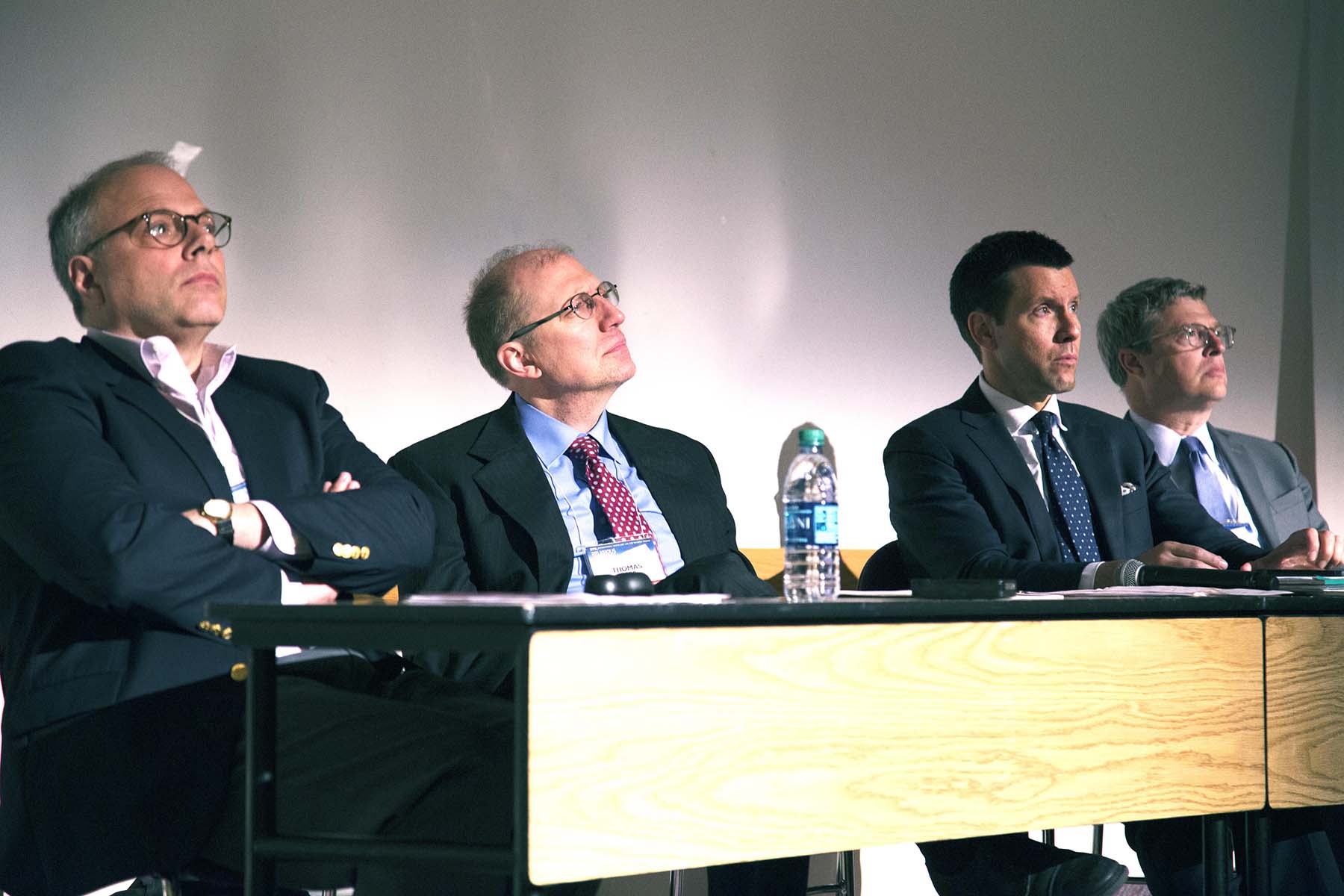Religious Freedom Annual Review 2016 Thursday Afternoon Plenary: Political Trends and Religious Freedom: Where Are We and Where Are We Going On Religious Freedom Issues Nationally?

Reported by Jarom Blackhurst
This session was moderated by David M. Kirkham, Senior Fellow for Comparative Law and International Policy, International Center for Law and Religion Studies, J. Reuben Clark Law School, Brigham Young University. The panelists were David Masci, Senior Writer/Editor, Pew Research Center; Thomas C. Berg, James L. Oberstar Professor of Law and Public Policy, University of St Thomas School of Law; Tim Schultz, President, First Amendment Partnership; and Brett G. Scharffs, Francis R. Kirkham Professor of Law and Director of the BYU International Center for Law and Religion Studies, J. Reuben Clark Law School.
David Masci, a Senior Writer/Editor from the Pew Research Center, began his remarks by asking the question: are we a religious country? He proceeded to discuss the question by citing studies conducted by the Pew Research Center over the past few years. The studies compared Americans’ responses to questions about religious belief and activity with responses of people from other countries. After comparing the United States with other western countries he showed the changes in responses over the past few years within the United States. He then focused on responses during election years and consistencies between religious activity and presidential candidate preferences.
Thomas C. Berg, James L. Oberstar Professor of Law and public Policy at the University of St Thomas School of Law, talked about society’s increasing polarization and heightened rhetoric. He pointed out that attacks on Christian conservatives and Muslims often mask a deeper issue that is not being resolved. He discussed the similarities and differences between Christian conservatives and Muslims and what they are currently experiencing in the United States.
Tim Schultz, President of First Amendment Partnership, talked about working with state legislatures on religious freedom. After pointing out that working with state legislatures is easier than working with the Federal government. In his discussion about religious freedom in the states he focused on three things. 1) What has happened, 2) why it has happened, and 3) what will happen.
Brett G. Scharffs, the Francis R. Kirkham Professor of Law and Director of the BYU International Center for Law and Religion Studies at J. Reuben Clark Law School, started by mentioning recent Religious Freedom Restoration Act controversies in Arizona and Indiana. Religious freedom is increasingly politicized with Religious Freedom Reformation Acts getting headlines designed to scare. He then discussed three ways to reduce the perceived conflict between religious freedom and LGBT rights. 1) Realize the dialogue about religious freedom is politicized, 2) everyone feels threatened, and 3) get out of the deadlock of the perceived zero-sum game.